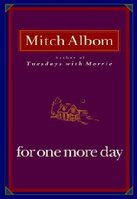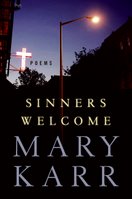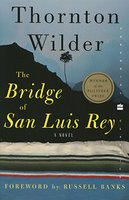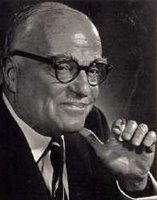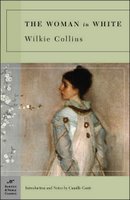 White Noise
White NoiseDon DeLillo
I've heard a lot about White Noise. It won the National Book Award in 1985, but I've been hearing a lot about it over the past few months. Seeing as it's such an "important" book full of "postmodern" ideas about "media saturation in the modern age" I thought I might give it a try.
As you might have guessed by my numerous amount of air quotes (ok, air quotes only exist in conversation, but I feel that the above qualify because I say so), White Noise annoyed the shit out of me. "Waaahh," says DeLillo. "Media's everywhere. True silence doesn't exist anymore because of the ubiquity of technology. We are ruining the environment. Did I mention technology is everywhere? What about advertising? That's everywhere, too."
Why, thanks, Don. I hadn't noticed.
It didn't help that my interest in the book was sparked by viewing the movie White Noise, which you might have seen. Probably not -- it wasn't that good. It was quasi-scary, and involved dead people communicating through -- you guessed it -- THE MEDIA. Well, specifically, television. Oh, that damned, evil technology. Gets you every time. Well, that's about the only connection between the book and the movie. Not that I was bothered by a loose adaptation -- I fully expect a movie to royally mangle a novel; thus, I felt fairly assured of a good read, based on the movie being somewhat bearable and based on the fact that so many critics rave about it.
I was snookered.
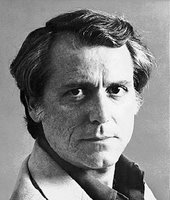 First, it's so LONG. Why? There's no need. Jack Gladney is on his fourth? fifth? (somehow, it's never quite clear) wife. He and his wife Babette (which is uncomfortably close to Baboon) have a Brady-Bunch-esque combined family of, oh I don't know I'll take a guess here, five kids? It might be more. Near the end of the book ANOTHER child was introduced. I mean, really, Don? Must we go that route?
First, it's so LONG. Why? There's no need. Jack Gladney is on his fourth? fifth? (somehow, it's never quite clear) wife. He and his wife Babette (which is uncomfortably close to Baboon) have a Brady-Bunch-esque combined family of, oh I don't know I'll take a guess here, five kids? It might be more. Near the end of the book ANOTHER child was introduced. I mean, really, Don? Must we go that route?
Anyway, Jack is a professor of Hitler studies at his college, and
No. You know what? I don't even care enough to finish the plot. He's afraid to die. Technology is everywhere. Nature is getting the shaft.
Bibliolatry Scale: 1 out of 6 stars
It didn't help that my interest in the book was sparked by viewing the movie White Noise, which you might have seen. Probably not -- it wasn't that good. It was quasi-scary, and involved dead people communicating through -- you guessed it -- THE MEDIA. Well, specifically, television. Oh, that damned, evil technology. Gets you every time. Well, that's about the only connection between the book and the movie. Not that I was bothered by a loose adaptation -- I fully expect a movie to royally mangle a novel; thus, I felt fairly assured of a good read, based on the movie being somewhat bearable and based on the fact that so many critics rave about it.
I was snookered.
 First, it's so LONG. Why? There's no need. Jack Gladney is on his fourth? fifth? (somehow, it's never quite clear) wife. He and his wife Babette (which is uncomfortably close to Baboon) have a Brady-Bunch-esque combined family of, oh I don't know I'll take a guess here, five kids? It might be more. Near the end of the book ANOTHER child was introduced. I mean, really, Don? Must we go that route?
First, it's so LONG. Why? There's no need. Jack Gladney is on his fourth? fifth? (somehow, it's never quite clear) wife. He and his wife Babette (which is uncomfortably close to Baboon) have a Brady-Bunch-esque combined family of, oh I don't know I'll take a guess here, five kids? It might be more. Near the end of the book ANOTHER child was introduced. I mean, really, Don? Must we go that route?Anyway, Jack is a professor of Hitler studies at his college, and
No. You know what? I don't even care enough to finish the plot. He's afraid to die. Technology is everywhere. Nature is getting the shaft.
Bibliolatry Scale: 1 out of 6 stars


